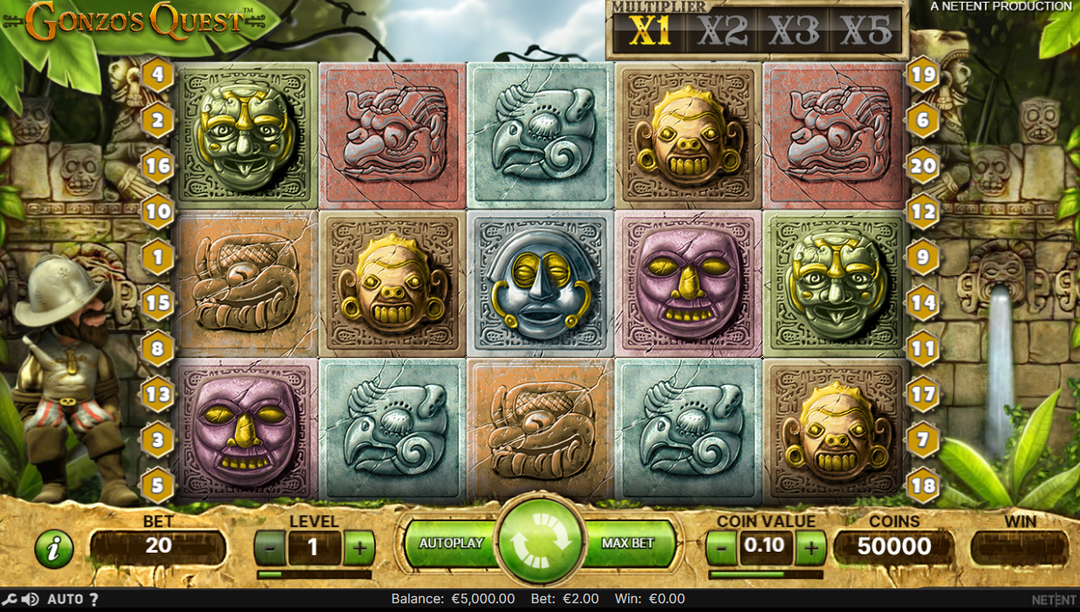Casino slot machines have been a staple of the gaming industry for decades, offering players a chance to win big with just a spin of the reels. From classic three-reel machines to modern video slots, these games have evolved significantly over the years. One popular example of a modern slot machine is the gonzo quest, which features exciting graphics and engaging gameplay. In this article, we will delve into the anatomy of a casino slot machine, exploring how they work and what makes them so appealing to players.

History of Slot Machines
The first slot machine was invented in the late 19th century by Charles Fey, a mechanic from San Francisco. Fey's machine, called the Liberty Bell, featured three reels with various symbols, including hearts, diamonds, and spades. Players would insert a coin, pull a lever, and hope to win a prize by lining up the symbols. Over the years, slot machines have undergone significant changes, with the introduction of electromechanical machines in the 1960s and video slots in the 1970s. Today, slot machines are a major part of the gaming industry, with thousands of different games available in casinos and online.
Components of a Slot Machine
A modern slot machine consists of several key components, including:
- Reels: The reels are the spinning wheels that display the symbols. Most modern slot machines have five reels, although some may have three or more.
- Paytable: The paytable is the list of winning combinations and their corresponding payouts. Players can view the paytable to see what they can win and how to win it.
- Random Number Generator (RNG): The RNG is a computer program that generates random numbers to determine the outcome of each spin. This ensures that the game is fair and unpredictable.
- Software: The software is the program that runs the game, including the graphics, sound effects, and gameplay mechanics.
How Slot Machines Work
So, how do slot machines work? Here's a step-by-step explanation:
- Player inserts coin or places bet: The player inserts a coin or places a bet to start the game.
- Reels spin: The reels start spinning, displaying a random selection of symbols.
- RNG generates outcome: The RNG generates a random number to determine the outcome of the spin.
- Paytable checks for wins: The paytable checks to see if the player has won anything, based on the symbols displayed on the reels.
- Payout is awarded: If the player has won, the payout is awarded according to the paytable.
Types of Slot Machines
There are several types of slot machines, including:
- Classic slots: Classic slots are traditional three-reel machines with simple gameplay and limited features.
- Video slots: Video slots are modern five-reel machines with advanced graphics and gameplay features, such as bonus rounds and free spins.
- Progressive slots: Progressive slots are games that feature a progressive jackpot, which increases with each bet placed.
- 3D slots: 3D slots are games that feature 3D graphics and animations, creating a more immersive gaming experience.
Slot Machine Odds and Probability
Slot machines are designed to pay out a certain percentage of the money that is put into them, known as the return to player (RTP). The RTP is typically around 90-95%, although it can vary depending on the game. The odds of winning on a slot machine are determined by the RNG, which generates random numbers to determine the outcome of each spin. Players can increase their chances of winning by:
- Choosing games with high RTP: Games with higher RTPs are more likely to pay out, so players should choose games with RTPs of 95% or higher.
- Managing bankroll: Players should set a budget and stick to it, to avoid overspending and minimize losses.
- Using bonuses and promotions: Players can take advantage of bonuses and promotions to increase their chances of winning and get more value for their money.
Slot Machine Myths and Misconceptions
There are several myths and misconceptions about slot machines, including:
- Hot and cold machines: Some players believe that machines can be "hot" or "cold", meaning that they are more or less likely to pay out. However, this is not true, as each spin is an independent event.
- Patterns and cycles: Some players believe that slot machines follow patterns or cycles, and that they can predict when a machine will pay out. However, this is not true, as the RNG generates random numbers to determine the outcome of each spin.
- Manipulation: Some players believe that slot machines can be manipulated or cheated, but this is not true. Modern slot machines are designed with advanced security features to prevent cheating and ensure fair play.
Conclusion
In conclusion, casino slot machines are complex devices that use advanced technology to provide players with a fun and exciting gaming experience. By understanding how slot machines work and what makes them tick, players can make informed decisions and increase their chances of winning. Whether you're a seasoned player or just starting out, there's a slot machine out there for you, so why not give it a spin and see what you can win?
- The Influence of Mobile Payments on Gambling Behavior
- The Future of Crash Games: Innovations and Features to Expect in the Coming Years
- Bet Andreas Casino Features
- オンラインカジノでの新しい冒険:bons
- 1xBet: Unlocking the Best Online Betting Experience





























































